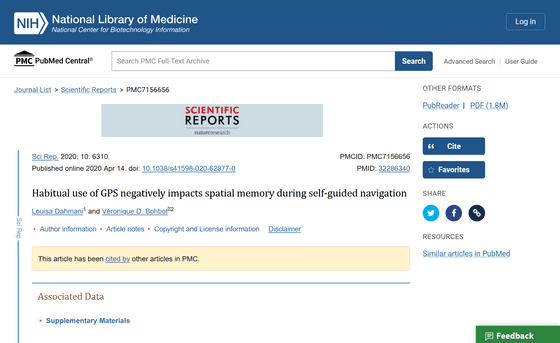It is shown that frequent use of GPS may weaken the brain's spatial recognition ability

With the development of GPS, it has become common for humans to rely on the location information of their smartphones wherever they go. Experiments have shown that people who used to walk looking at paper maps may have begun to rely on location information, which may have weakened their ``spatial memory,'' which helps them remember specific places and routes. it was done.
Habitual use of GPS negatively impacts spatial memory during self-guided navigation - PMC

Louisa Darmani of McGill University in Canada and her colleagues conducted a survey of 50 drivers who drive a car four or more days a week. A test was conducted to measure the ability of
From these results, it became clear that the higher the dependence on GPS, the weaker the ability to grasp the space tended to be. In addition, those who strongly depended on GPS were not good at learning from mistakes because they were unable to use their learning ability in tests that measure spatial recognition ability.
Furthermore, the longer the history of GPS use, the more difficult it was to grasp the space and draw a map in the brain.

``Our findings show that regular GPS use can affect spatial memory. Too much reliance on GPS can be life threatening if it breaks down.'' Yes, we believe this is an important result given the increasing reliance on GPS.'
Related Posts:
in Science, Posted by log1p_kr







